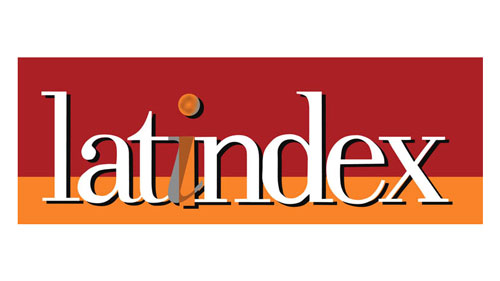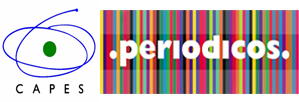Discurso e relações de poder na (re)construção da identidade profissional de professores de língua em uma comunidade de prática no ambiente digital
DOI:
https://doi.org/10.26512/rhla.v15i1.1424Keywords:
Discurso;, Poder;, Comunidade de Prática;, Formação de professor;, Tecnologia;, Discourse;, Power;, Community of Practice;, Teacher formation;, TechnologyAbstract
Resumo
Este artigo tem como principal objetivo abordar questões referentes a discurso e relações de poder na (re)construção da identidade profissional de professores de língua em uma Comunidade de Prática em um ambiente virtual, tendo em vista a transitoriedade, a complexidade e a dinamicidade do objeto investigado. Trata-se de uma pesquisa qualitativa de cunho etnográfico que apresentou como procedimento metodológico um estudo de caso envolvendo dois professores em formação e uma professora formadora. Os resultados evidenciam posicionamentos de poder nas interações dos participantes, o que justifica a necessidade de abordagem temática desse complexo processo de (re)construção identitária nos cursos de graduação, de forma a contribuir de maneira mais significativa com a formação reflexiva e identitária dos futuros profissionais do curso de Letras.
Palavras-chave: Discurso. Poder. Comunidade de Prática. Formação de professor. Tecnologia.
Abstract
This article aims to address issues of discourse and power relations in the (re) construction of the professional identity of language teachers in a community of practice in a virtual environment, considering the transience, complexity and dynamics of the investigated object. This is a qualitative ethnographic research study, which presents the methodological approach of a case study involving two student teachers and a teacher educator. The results show power positions in the interactions of the participants, which justifies the need for a thematic approach to this complex process of (re) construction of identity in undergraduate courses in order to more significantly contribute to the reflective and identity formation of future professionals in Modern Languages and Literature Courses.
Keywords: Discourse. Power. Community of Practice. Teacher formation. Technology.
Downloads
References
ANDRÉ, Marli E. D. A. Etnografia da prática escolar.Campinas: Papirus Editora, 1995.
______. A pesquisa sobre formação de professores no Brasil: 1990/1998. In: CANDAU, Vera Maria (Org.) Ensinar e aprender: sujeitos, saberes e pesquisa. Rio de Janeiro: DP&A, 2000. p. 257-66.
ALSUP, Janet. Teacher identity discourses: negotiating personal and professional spaces. Mahwah, New Jersey: Lawrence Erlbaum Associates, 2006.
BARBOSA, SelmaM. A. D. Escrita em ambiente virtual na formação inicial do professor de língua estrangeira. In: SILVA, Wagner. R. (Org.). Letramento do professorem formação inicial:interdisciplinaridade no estágio supervisionado da licenciatura. Campinas: Pontes, 2012.p.165-180.
BEDRAN, Patrícia F. A formação inicial do professor de línguas no e para o contexto virtual e a construção de comunidades de prática.306f. Tese (Doutorado em Estudos Linguísticos)”“Instituto de Biociências, Letras e Ciências Exatas,Universidade Estadual Paulista Júlio de Mesquita Filho,São José do Rio Preto, 2012.
BUCKLEY, Sheryl; DU TOIT, Adeline. Academics leave your ivory tower: form communities of practice. Educational Studies,v. 36, n. 5,p. 493-503, 2010.
BURNS,Anne.Collaborative action research for English language teachers.New York: Cambridge University Press, 1999.
CLARKE, Matthew. Language teacher identities: co-constructing discourse and community.Clevedon: MultilingualMatters, 2008.
CORACINI, Maria José R. F. Língua estrangeira e língua materna: uma questão de sujeito e identidade. In: CORACINI, Maria JoséR. F. (Org.). Identidade e discurso:(des)construindo subjetividades. Campinas: Unicamp, 2003.p. 139-59.
CUMMINS, Jim.Negotiating identities.Education for empowerment in a diverse society.Ontario: California Association for Bilingual Education, 1996.
DUFF, Patricia; UCHIDA, Yoshikazu. The negotiation of teachers’ sociocultural identities and practices in postsecondary EFL classrooms.TESOL Quarterly, v.31, n. 3, p. 451-86, 1998.
ERICKSON, Frederick. Qualitative methods in research on teaching. In: WITTROCK, MerlinC. (Ed.). Handbook of research teaching. New York: MacMillan Publishing Co, 1986.
FAIRCLOUGH, Norman.Critical discourse analysis and the marketization of public discourse:the universities.Discourse and Society,v.4,n.2,p. 133-168, 1993.
FETTERMAN, David M. Etnography: step by step. London: Sage Publications, 1998.
FOUCAULT, Michel. Microfísica do poder. Organização, introdução e revisão técnica de Roberto Machado. Rio de Janeiro: Graal, 1979.
FREIRE, Paulo. Pedagogia do oprimido.Rio de Janeiro: Paz e Terra, 1970.
GEE, James P. An introductionto discourse analysis: theory and method. London: Routledge, 1999.
GIMENEZ, Telma;CAPRIOLI, Barbara. Relações de poder em comunidades de prática: um estudo com professoras de inglês. Metalinguagens,v. 1, p. 49-65, 2014.
GIROUX, Henry A. Teachers as intellectuals: toward a critical pedagogy of learning. Granby: Bergin&Garvey, 1988.
______. Cruzando as fronteirasdo discurso educacional:novas políticas em educação. Porto Alegre: Artes Médicas, 1999.
LEFFA, Vilson. Identidade e aprendizagem de línguas. In: SILVA, Kleber A. et al. (Org.).A formação de professores de línguas:novos olhares. Vol II. Campinas: Pontes Editores, 2013. p.51-81.
LEUNG, Constant; HARRIS, Roxy; RAMPTON, Ben.The idealized native speaker, reified ethnicities and classromm realities.TESOL Quarterly, v.31, n. 3, p. 543-60, 1997.
MANTERO, Miguel.Identity and second language learning: culture, inquiry, and dialogic activity in educational contexts. North Carolina: Information Age Publishing (IAP), Charlotte, 2007.p. 1-12.
MEDEIROS, Leila L. de. Comunidades virtuais de educadores: um espaço virtual de construção da prática docente.Dissertação (Mestradoem Educação)”“Faculdade de Educação, Universidade Federal Fluminense, Niterói, 2005.
MOITA LOPES, Luiz Paulo. Oficina de LinguísticaAplicada. Campinas: Mercado de Letras, 1996.
______. (Org.) Por uma Linguística Aplicada indisciplinar. São Paulo: Parábola Editorial, 2006. 279p.
MORGAN, Brian. Identity and intonation: linking dynamic processes in the ESL classroom. TESOL Quarterly, v. 31, n. 3, p. 431-50, 1997.
NORTON, Bonny.Identity and languagelearning: gender, ethnicityand educational change. Edinburgh: Pearson Education, 2000.
NUNAN, David. Research methods in language learning.Cambridge: University Press, 1992.
PINO-SILVA, Juan; MAYORA, CarlosA. English teachers' moderating and participating in CoPs.System, v. 38, p. 262-271, 2010.
REIS, DaviS. I’m not alone: empowering non-native English-speakingteachers to challenge the Native Speaker Myth. In: JOHNSON, Karen. E.; GOLOMBEK, Paula. R. (Ed.). Research on second language teacher education: asociocultural perspective on professional development. New York and London: Routledge, 2011. p. 31-49.
SCHECTER, Sandra; BAYLEY, Robert.Language socialization practices and cultural identity: case studies of Mexican descent families in California and Texas. TESOL Quarterly, v. 31, n. 3, p. 513-42, 1997.
SIMON, Roger. Empowerment as pedagogy of possibility.Language Arts, v.64, p.370-383, 1987.
______. Teaching againstthe grain:texts for a pedagogy of possibility. New York: Bergin;Garvey, 1992.
THESEN, Lucia. Voices, discourse and transition. TESOL Quarterly, v. 31, n.3, p. 487-512, 1997.
TRENT, JohnG.; LIM, Ching Y.Teacher identity construction in school-university partnership: discourse and practice. Teaching and Teacher EducationJournal,Hong Kong,Elsevier, v.24, n. 26, p. 1609-1618, 2010.
URZÚA, Alfredo; VÁSQUEZ, Camilla. Reflection and professional identity in teachers’ future-oriented discourse.Teaching and Teacher Education Journal,University of Texas,Elsevier, v.24, n. 24, p. 1935-1946, 2008.
VARGHESE, Manka M. et al. Theorizing language teacher identity: three perspectives and beyond. Journal of Language, Identity, and Education, v.6, n. 4, p. 21-44, 2005.
WENGER, Étienne. Communities of practice: learning, meaning, and identity. Cambridge: Cambridge University Press, 1998.
______; SNYDER, William M. Communities of practice: the organizational frontier. Harvard Business Review. Jan./fev.2000. Disponível em: <http://www.ewenger.com/pub/index.htm>. Acesso em: 13 jul. 2010.
______. MCDERMOTT, Richard; SNYDER, William M.A Guiding to managing knowledge:cultivating communities of practice. Boston: Harvard Business School Press, 2002.
Downloads
Published
How to Cite
Issue
Section
License

A Revista Horizontes de Linguística Aplicada de http://seer.bce.unb.br/index.php/horizontesla/index é licenciado sob uma Licença Creative Commons Atribuição-Uso não-comercial-Vedada a criação de obras derivadas 3.0 Unported.
- Autores mantém os direitos autorais e concedem à revista o direito de primeira publicação, sendo o trabalho simultaneamente licenciado sob a Creative Commons Attribution License o que permite o compartilhamento do trabalho com reconhecimento da autoria do trabalho e publicação inicial nesta revista.
- Autores têm autorização para assumir contratos adicionais separadamente, para distribuição não-exclusiva da versão do trabalho publicada nesta revista (ex.: publicar em repositório institucional ou como capítulo de livro), com reconhecimento de autoria e publicação inicial nesta revista.




